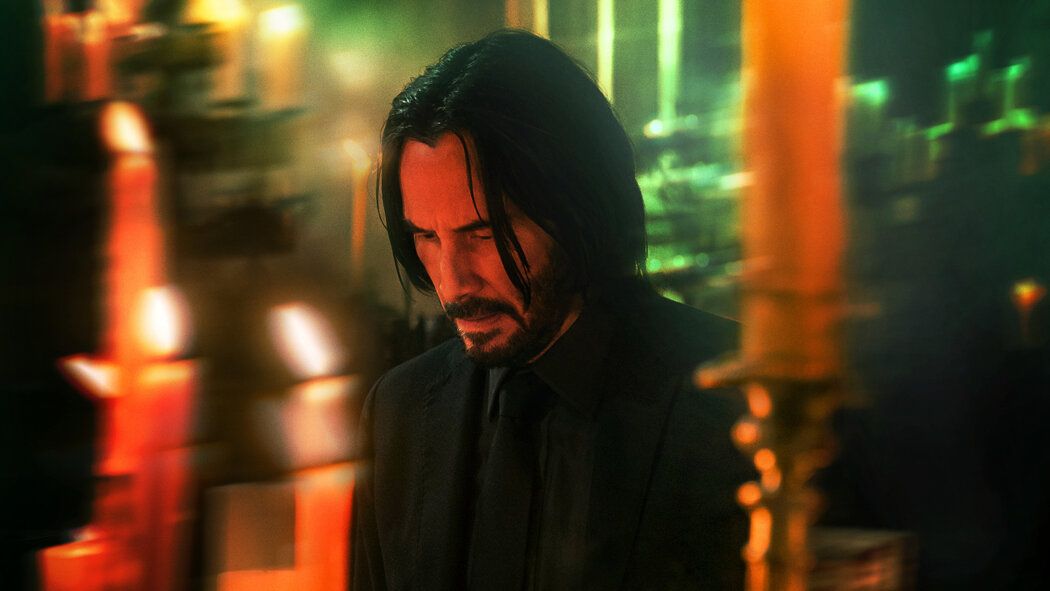John Wick: Chapter 4

Originally published on 27/03/23 on Letterboxd
Was extremely sceptical of the idea that these could only improve the more they expanded their scope (something that Parabellum, for all its panicked manic all-nighter energy, largely failed to live up to by virtue of accumulating so much directionless exposition that it slowed down to a halt up until the climax). Chapter 4, though, is perhaps the only iteration of these that justifies the structure of the Homerian epic they’re conceived upon. Here, in particular, resides the most heavy-handed, almost cartoonishly transparent allusions to the mythic that the series has dabbled in.
At the same time though, it is precisely this total and unadulterated sincerity with which it magnifies the scale of its skirmishes to acts of mythmaking in their own right- and with such joy does it weave these myths. The pattering of waterfalls becoming enveloped into the rhythmic patter of fists against faces, the illumination of a darkened church by hellfire spouting from the weapon of the grim reaper, the omnipresent chorus in the form of the radio announcements in the vein of The Warriors (which, in turn, is premised upon Greek myths)- all of this is ultimately in service of elevating Keanu’s ragged executioner into a totemic figure within the genre he’s devoted so much of his life to, in much the same way as the heroes of the westerns and samurai epics this draws so heavily and proudly upon. It is to his credit that even when situated amongst the likes of genuine maestros of martial arts like Donnie Yen and Scott Adkins that Reeves not only holds his own (firmly refuting the baseless doubts levelled so often towards his modes of performance) but occupies a metatextual weariness with such genuine sadness that I found myself deeply moved in much the same way as I was moved by the existential agony of his performance in The Matrix Resurrections, which is still one of the most beautiful portrayals of aging I’ve ever seen.
Here, of course, there is not so much an acceptance that the past is dead and buried as much as there is an acceptance that it will never stay buried unless one forges a new coffin for it, lit by the embers of gunfire and the soft amber glow of the rising sun. I was already moved by the gracefulness of its ending, but its enormity didn’t hit me until later, when I realised that the film ends with the same image as The Matrix Revolutions.
